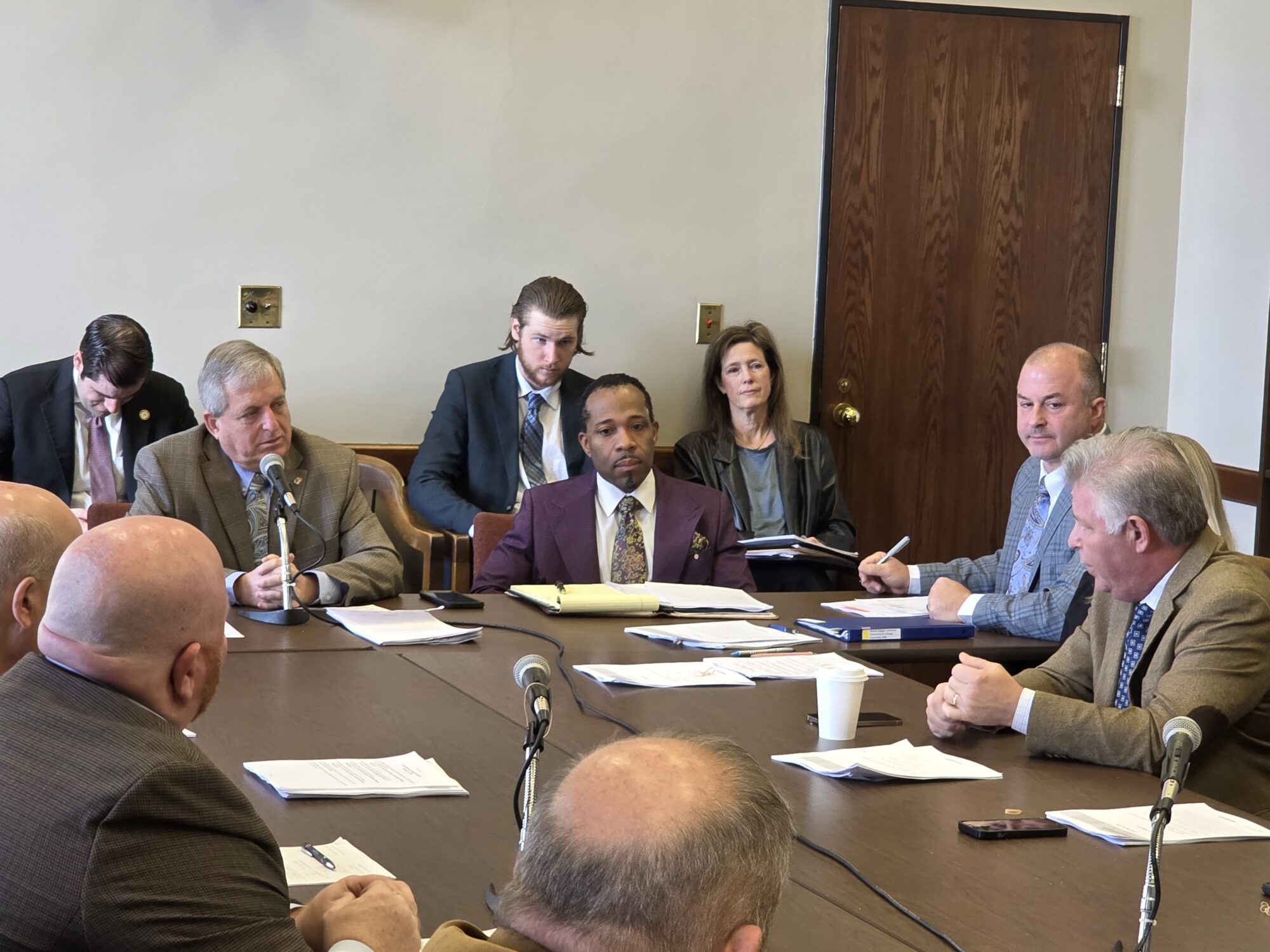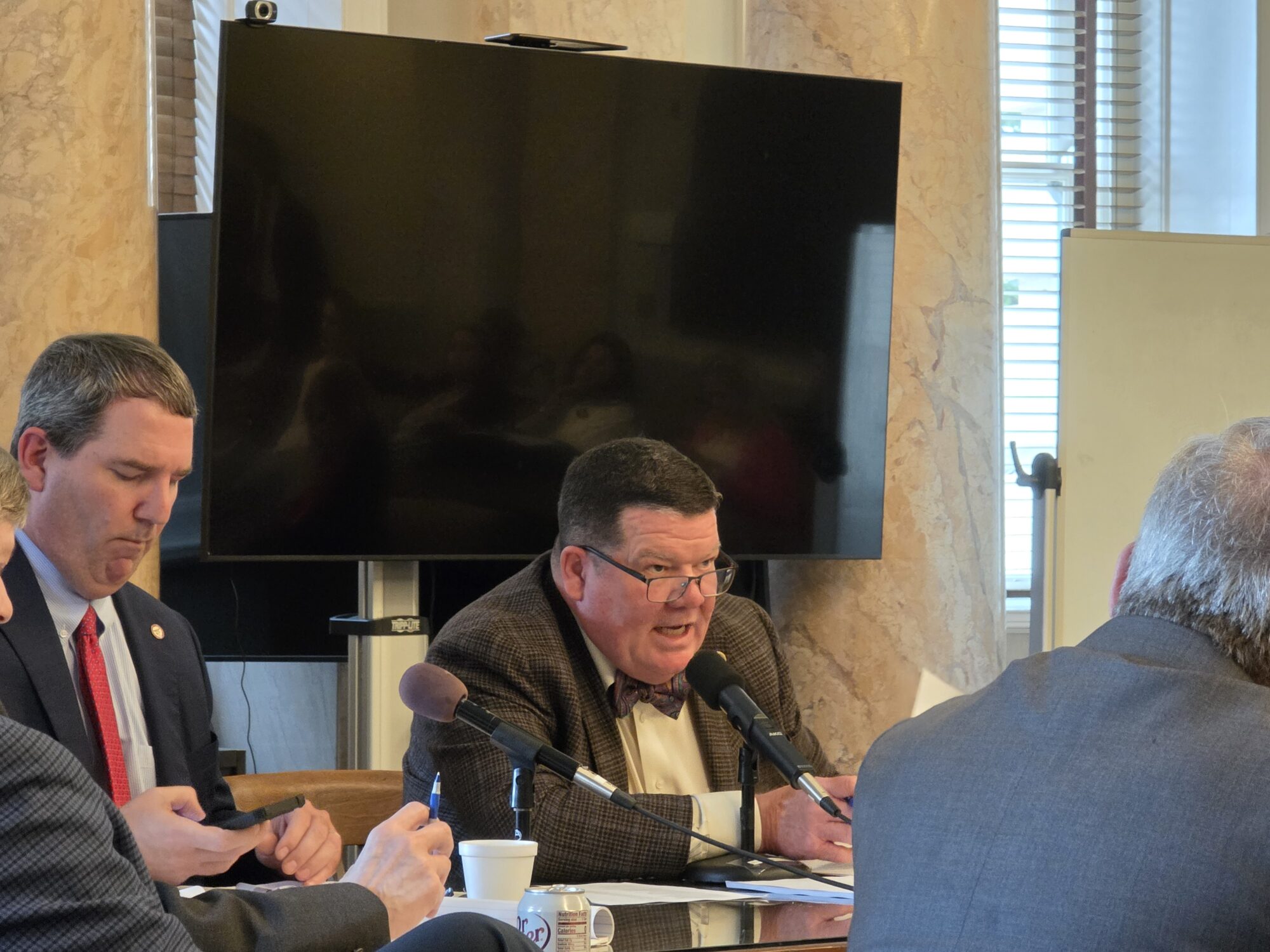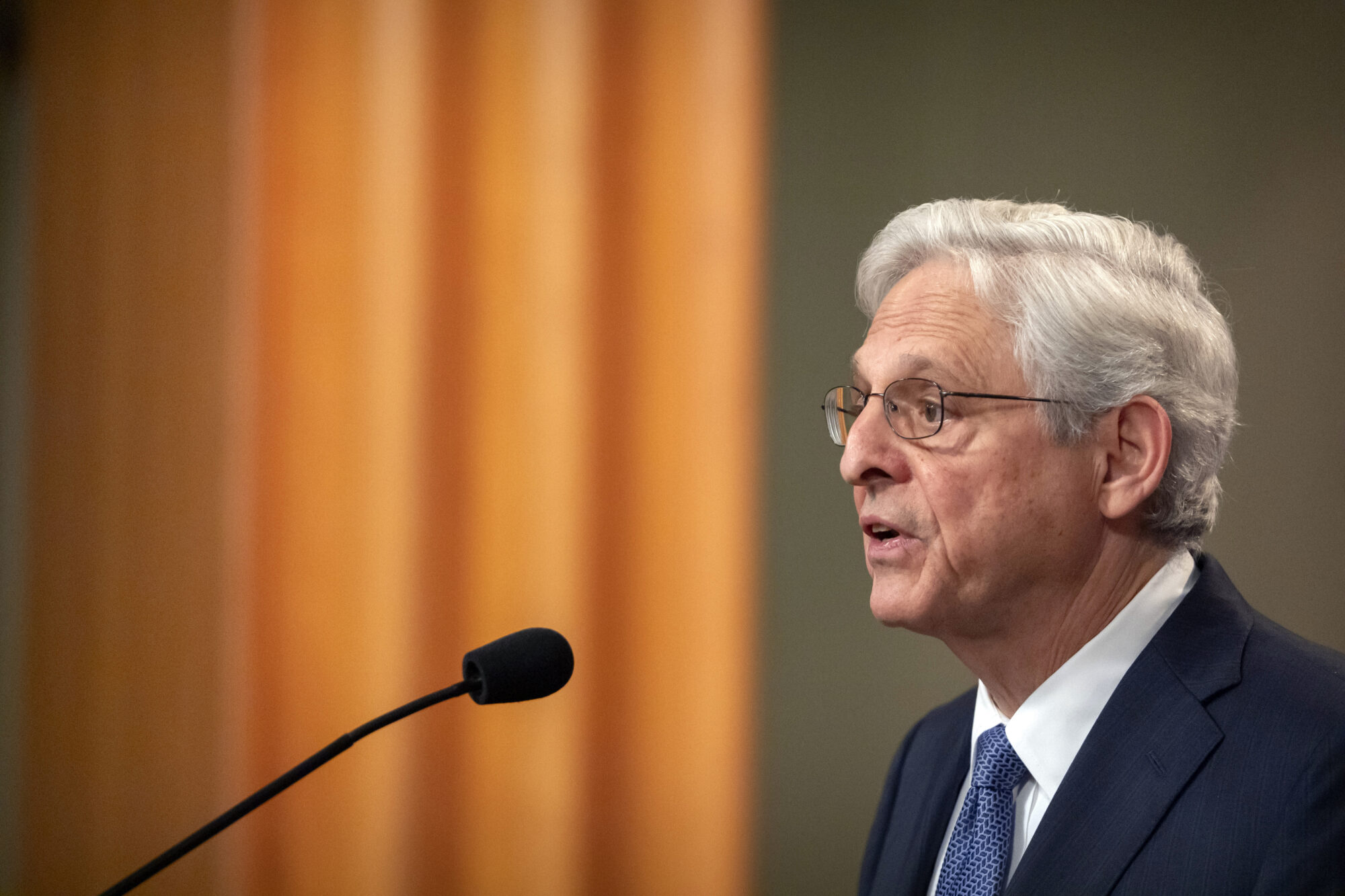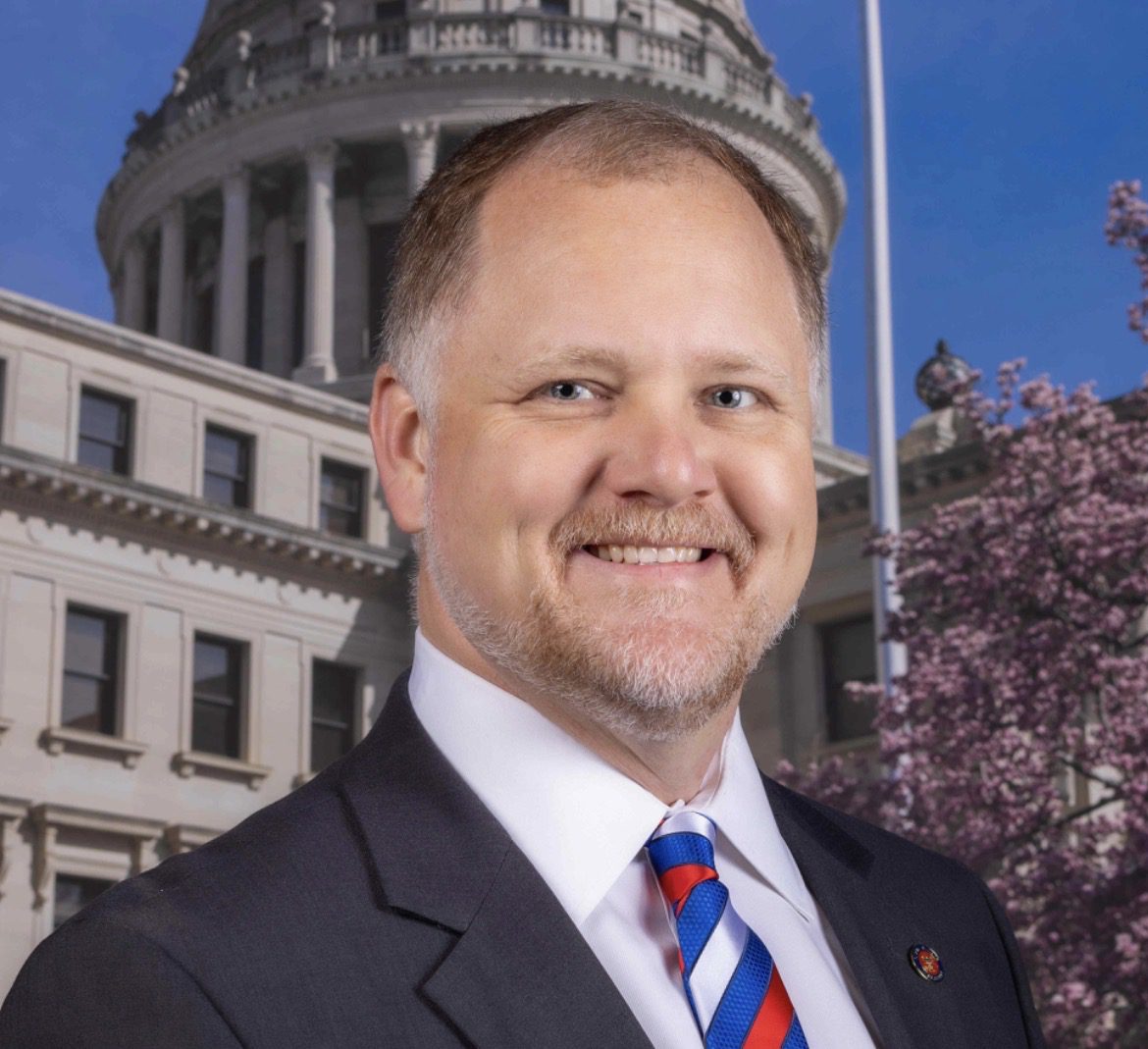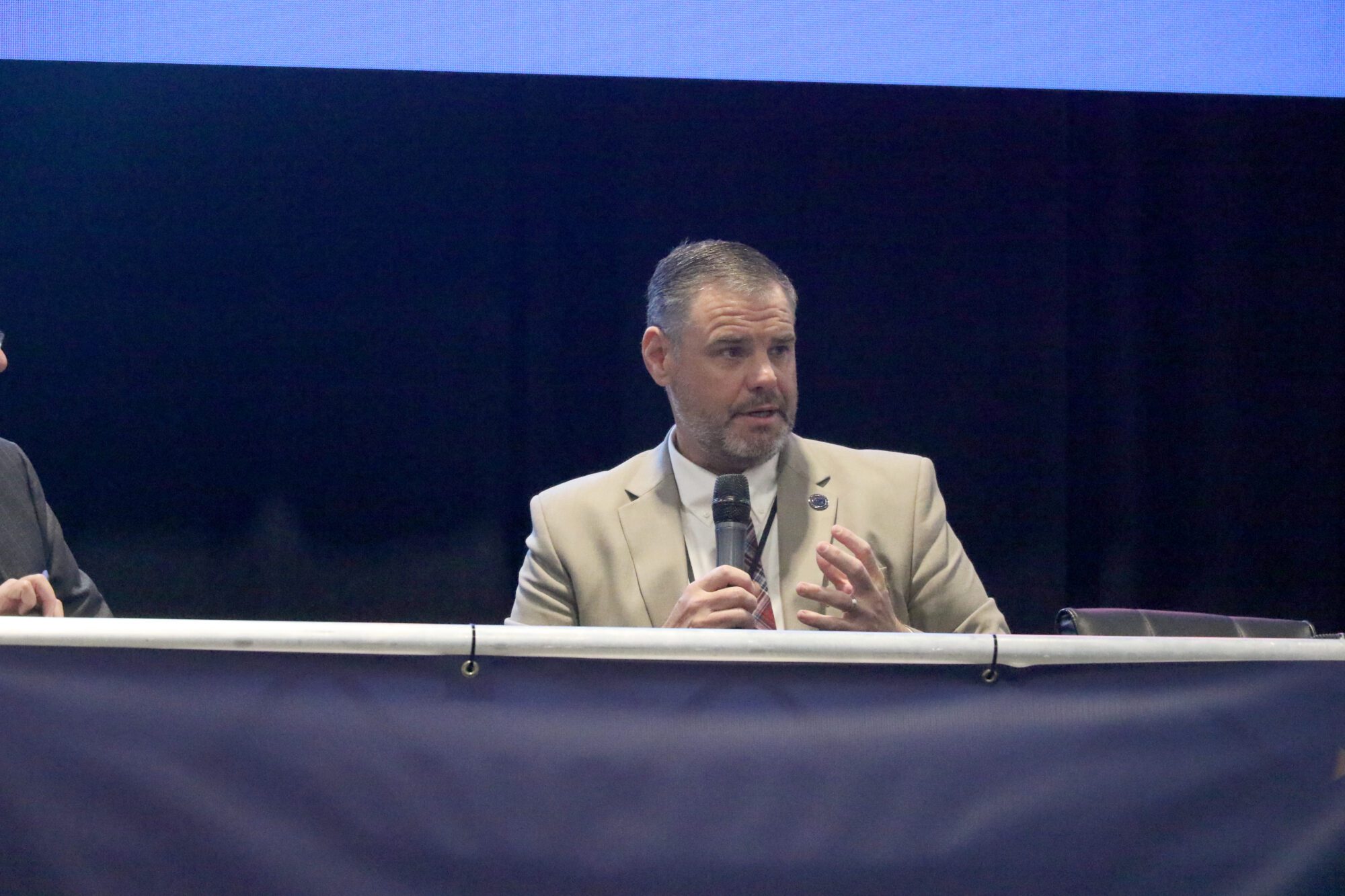
State Superintendent Dr. Lance Evans speaks to attendees of the Mississippi Economic Council's Capital Day, held on Wednesday in Jackson. During his presentation he spoke about the various ways businesses and industries and the state's public education system can work together to meet the state's workforce needs. Photo by Jeremy Pittari | Magnolia Tribune
- Dr. Lance Evans tells business leaders MDE is working to provide the workforce of tomorrow and invites partnerships to improve student success.
To meet the needs of Mississippi’s growing businesses and industries, changes are being planned in the state’s public schools, State Superintendent Dr. Lance Evans told attendees at MEC’s Capital Day last week.
On Thursday, Evans spoke on how the Mississippi Department of Education (MDE) plans to meet the needs of the state’s workforce by ensuring the state’s education system develops high school graduates who are ready to enter the workforce while also giving students planning to attend a university the tools to be successful.
Evans stressed it will require partnerships between public education and the state’s businesses and industries to reach those goals.
“Twenty years ago, you would have never seen the connection between private business and industry in the K-12 world,” Evans told the crowd at MEC on Thursday.
The recently released Mississippi Department of Education’s Superintendent Report compiled the achievements made in the previous school year, including the record-breaking graduation rate that reached 89.4 percent.
Other achievements outlined in the report show an increased number of Mississippi students are taking advanced placement exams at nearly double the rate of a decade ago. In 2024, 12,442 students took the exams more than 17,000 times. Of those completed exams, 7,733 earned qualifying scores, a new record for the state, the report notes.
The report goes on to outline that 6,720 students in Mississippi earned industry certifications through the state’s public school Career and Technical Education programs.
“It’s great to be headed in the right direction but we have lots to do to make the Mississippi education the best it can be. I know Dr. Evans has plans,” said State Representative Rob Roberson, chairman of the House of Representative’s Education Committee.
Part of reaching that goal will mean forming another “lane” for the state’s accountability model. While the education component will remain in its own lane, Dr. Evans described how a workforce component will be established that merges with education. The workforce lane will utilize a dashboard format to report results in an easier way for those not working in the education field to understand.
Dr. Evans said the system needs to adjust to meet students’ expectations and life goals.
“What we have to do is we have to rethink what public education looks like, what K-12 education looks like,” Evans described. “It has evolved tremendously over the years and… something that we have to always remember is to keep the main thing the main thing.”
To that end, the education system will need to be “nimble” to best meet the needs of the state’s businesses and industries, Evans said, especially when taking into consideration the unique regions in Mississippi. One of the ways MDE is working to meet that goal involves providing similar results as local school boards continue to set the best policies that work locally.
MDE’s efforts in that regard will include the Office of School and District Transformation, the goal being to not take over entire school districts but rather provide individual schools that are struggling with the tools they need to succeed.
“Our board, they have no desire to be the school board for a school district,” Evans explained.
Additionally, since the state has been divided into eight regions based on workforce needs, Dr. Evans said a strategic plan is being developed to ensure those needs are met by the public education system.
Ultimately, it will be up to each school district’s Board of Trustees to develop policies and procedures to address issues as they see fit, since Dr. Evans said the state still has a largely locally controlled education system.
Evans urged local business and industry owners to contact his office with any suggestions they may have to address their current workforce needs.
